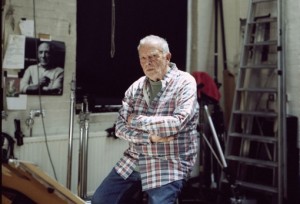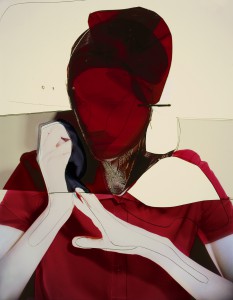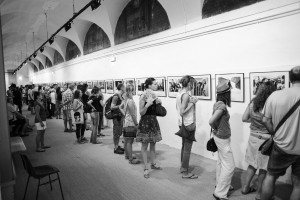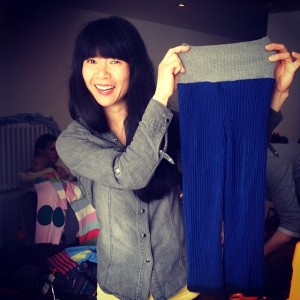RM: How did you develop an interest in photography?
DB: My first inspiration was finding out about Picasso. I used to draw and paint as a teenager, but my mother had a box Brownie camera. I started taking pictures because I wanted to take a picture of me looking like Chet Baker.
Up until I was 17 I did all sort of jobs, my last job being a bad debt collector on the Isle of Dogs. I was a gofer for Mickey Fox, a well-known boxing referee, in the East End. I then joined the air force and spent two years in Malaysia and Singapore.
It wasn’t until I saw a picture by Henri Cartier-Bresson that I started considering photography artistic. I liked the idea that a picture could come out of nothing. I used to pawn my camera so I could pay for the film.
RM: You grew up in the East End. Has that part of London changed much, to you?
DB: Yes, of course it has, it’s all gone.
I was born in Leytonstone; my mother was a real cockney, born in Bow. When I was about three and a half, the house next door was bombed. The first memory I have is of walking on glass, and I seemed to have been walking on glass until 1948.
I’ve been working on three books about the East End – one on the Sixties, another on the Eighties, and a third about now which includes 250 images, from which we’ve pulled 50 or 60 for Newham Council to be exhibited in the Royal Docks.
RM: You’re 74 now. Do you feel that age affects creativity?
DB: I’m probably more creative now because time is running out. You have to get a move on; you don’t get distracted by sex so much, or women. It’s easier to be creative because you’ve got all the tools.
Education is nothing. You can’t [change] somebody who is stupid. You can send them to university for three years, but they’re only ever educated, they aren’t intelligent. Education is political, it’s about politicians making themselves feel better about themselves. Why would I need a degree in literature to be a plumber? Einstein said: “Imagination is more important than knowledge.” The only thing you can’t teach someone at art school is about art, because it has to come from inside.
RM: You’ve spent a lot of your life photographing women. You obviously have a great knowledge of the opposite sex.
DB: I certainly prefer the company of women, yes.
RM: Is photography a craft, or an art form?
DB: Anyone can be a craftsman. There’s no difference between taking a picture, or making a painting, or making a pot.
The most stupid phrase I’ve ever heard is “art photography”. Photography is an art, and it depends on whether the person doing it is an artist or not. What’s the difference between carrying a paintbrush and a camera?
RM: Is it hard to take direction from editors?
I’m not an actor and I don’t perform like a monkey on a stick. You look at someone and sum them up. Within an hour, you suss them out. I see a man’s haircut, what watch he’s wearing. I watch their language and see what kind of space they take up. When Tina Brown, the editor I’ve worked with most over the years and who I love, used to say, “This bloke’s arrogant – can we show this?”, I used to say: “No, if I take a portrait of someone, it’s how I see them.” I’m not going to manipulate someone for some journalistic reason. How do you view the media today?
The media today are awful. They give people what they want. Journalism hasn’t changed; if you want the truth, never listen to the media.
RM: Do you have any regrets?
DB: No, what would I regret? If I had regrets, it would mean I had made some bad decisions.
RM: Do you vote?
DB: I’ve voted only once in my life and that was recently and that was for the Conservatives. I did sort of hate Blair for signing with Bush. I like George Osborne. He came here a couple of times; he had a sense of humour. He seemed to make sense to me. And I like Boris, because he brings a sense of life to politicians: the most dreary people in the world – who wants the country to be run by them? So Boris is a breath of fresh air and an amusement. He’s a bit of a joke, but he is a good joke.
RM: Are we all doomed?
Yes. The biggest problem in the world is not some hedge-fund guy driving around making the world hotter. People are making the world hotter. The simple thing is that there are too many people and the biggest problem is population. Reduce the population and you’ll reduce pollution. The earth has a mind of its own: we will have plagues and wars because there are too many people. And history repeats itself – that’s why Blair should never have gone into Iraq.




